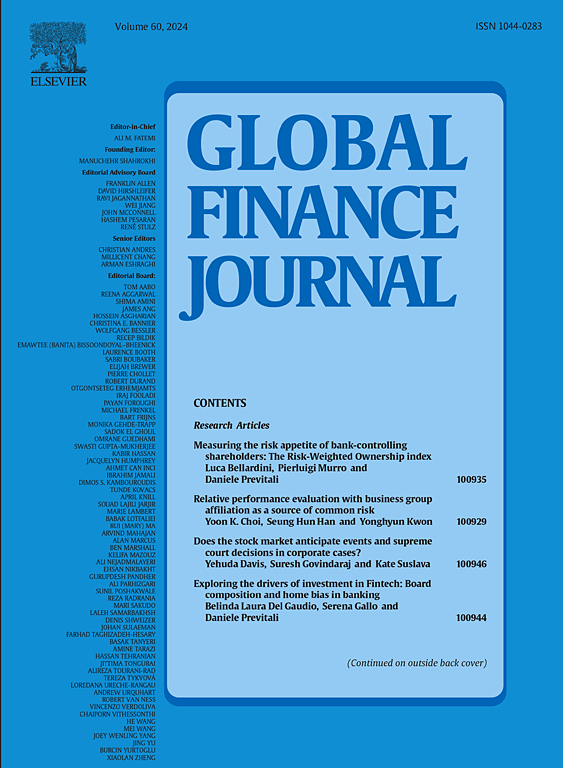Walking quietly: Fiduciary waivers and blockholder exit
IF 5.5
2区 经济学
Q1 BUSINESS, FINANCE
引用次数: 0
Abstract
Corporate opportunity waivers let directors pursue outside ventures, weakening the duty of loyalty that supports investor confidence. Exploiting staggered state adoptions of these statutes from 2000 to 2018, we examine how blockholders, the market’s main bulwark against self-dealing, react. Public governance signals barely change; support for management proposals slips by less than one percentage point, failed director elections fall, and friendly hedge fund activism fades. Once scrutiny shifts toward the potential outcomes of private monitoring, a strikingly different picture emerges, as larger firms experience more frequent departures of independent directors, activists who once cooperated with management adopt confrontational tactics, and long-horizon investors pare their stakes, especially where diversion prospects are very high, analyst coverage is extensive, and boards are larger. Loosening fiduciary standards, therefore, gradually weakens shareholder oversight, eroding a critical governance mechanism and placing long-term firm value at risk, despite initial market optimism.
悄无声息地走着:受托人豁免和大股东退出
公司机会豁免让董事们追求外部投资,削弱了支持投资者信心的忠诚义务。利用2000年至2018年各州交错采用这些法规的情况,我们研究了市场上反对自我交易的主要堡垒——大股东的反应。公共治理信号几乎没有变化;管理提案的支持率下降了不到一个百分点,董事选举失败,友好的对冲基金激进主义消退。一旦审查转向私人监督的潜在结果,一幅截然不同的画面就会出现,因为大公司的独立董事离职更频繁,曾经与管理层合作的激进分子采取对抗策略,长期投资者削减他们的股份,特别是在转移前景非常高、分析师覆盖范围广泛、董事会规模更大的地方。因此,放松信托标准会逐渐削弱股东监督,侵蚀关键的治理机制,并使公司的长期价值面临风险,尽管市场最初持乐观态度。
本文章由计算机程序翻译,如有差异,请以英文原文为准。
求助全文
约1分钟内获得全文
求助全文
来源期刊

Global Finance Journal
BUSINESS, FINANCE-
CiteScore
7.30
自引率
13.50%
发文量
106
审稿时长
53 days
期刊介绍:
Global Finance Journal provides a forum for the exchange of ideas and techniques among academicians and practitioners and, thereby, advances applied research in global financial management. Global Finance Journal publishes original, creative, scholarly research that integrates theory and practice and addresses a readership in both business and academia. Articles reflecting pragmatic research are sought in areas such as financial management, investment, banking and financial services, accounting, and taxation. Global Finance Journal welcomes contributions from scholars in both the business and academic community and encourages collaborative research from this broad base worldwide.
 求助内容:
求助内容: 应助结果提醒方式:
应助结果提醒方式:


